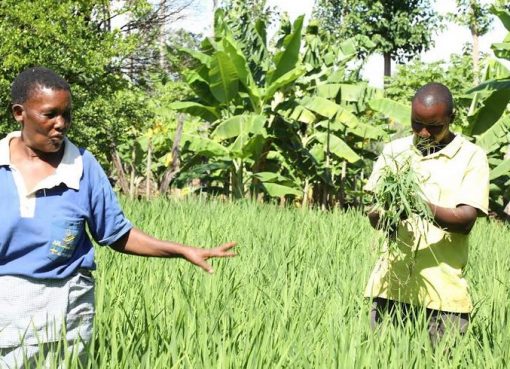Transforming trade in organic agricultural products in the Africa will require the presence of vibrant retail sector and ecommerce platform.
Experts in agriculture cite that organic production and trade are key issues for the development of many green value chains but there is still a lack of awareness and capacity.
According to United Nations Conference on Trade and Development (UNCTAD),the high sales of organic products is being driven by the rise of middle class in the Sub-Saharan Africa region which currently stand at 100 million people.
Malicke Kane, project coordinator with the UNCTAD during the ongoing International Conference on Agroecology in Nairobi said the current figure of middles class exclude South Africa that has a total of spending power of over Ksh. 40 billion (USD 400) million per day enjoys impressive growth forecast.
“The global market for organic products that has been on a growth trajectory in the last decade stood at about Ksh.9.7 trillion (USD97 billion) in 2017,” Kane said.
He added that countries located in east and northern African region have gradually penetrated the global market for organic products through export of tropical fruits, vegetables, cereals, fish, nuts and roasted coffee.
The United States, China, European Union and Canada dominate the global market for organic products while Africa is lagging behind and this is due to infrastructural, technological and human capacity hurdles.
United States of America is the largest market at Ksh.4.5 trillion (USD45.2 billion), European Union at Ksh.3.9 trillion (USD39billion), China Ksh.860 billion (USD8.6 billion) and Canada Ksh.340 billion (USd3.4 billion).
According to the UN, Sub-Saharan Africa is experiencing the largest urban growth in the world, but most development efforts continue to target rural communities.
Kane observed that the organic food market is further being stimulated by development of the retail sector.
“Supermarkets and modern stores are growing and still only represent a fraction of the sales accounting around 10 per cent and development of organic stores,” he added.
Based on the stated organic sales growth factors, Kane said more products will continue to be available on African e-commerce platforms.
He confirmed that e-commerce sales in Africa are expected to reach between Ksh.5trillion (USD50) and Ksh.7.5 trillion (USD.75 billion) in the next 10 years and thus will improve the marketing of African organic products.
Some of the e-commerce platforms he said include Jumia, Kalimoni Green (Kenya), Epicerie verte (Morocco), Cooperative Sell-sellal (Senegal), and Msongue family farm (Zanzibar).
Home-grown start-ups that have sprung up in many African countries, he noted have been at the forefront of streamlining value chains for organic products.
“These start-ups are providing innovative solutions to help improve quality, traceability and marketing of organically grown farm produce in Africa,” said Kane.
He further said that adoption of new technologies as well as capacity building targeting small-holders, aggregators and retailers is key to boost growth of market for organic products in Africa.
Bo Van Elzakler of Agrofco Louis Bolk institute in his presentation on agroecology and organic trade in symbiosis said owing to low food production, African countries import bill is expected to increase to Ksh.11 trillion ( USD.110 billion) by 2025 from the current Ksh.3.3 trillion (USD33billion).
The 1st International Conference on Agroecology dubbed Transforming Agriculture and Food Systems in Africa is running for three days and has brought in participants from all over the world is themed: “ Reducing synthetic fertilisers and pesticides by scaling up Agro-ecology and promoting ecological organic trade.
By Wangari Ndirangu


